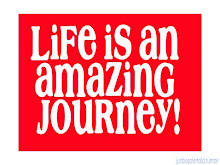University of Alabama at Birmingham (UAB) psychologist Mary Boggiano, Ph.D. says it doesn't just seem that way. You really are being forced to think about your temptations.
Crash dieting can turn your brain into your worst enemy. That’s because the brain’s response to extreme, low-calorie diets or all-protein or all-carbohydrate diets is to increase the brain’s natural chemicals that cause hunger, says Boggiano.
Why would your brain do that to you?
According to Mary Boggiano...it's for your own good! Studies of young children show that those with failure to thrive lacked the normal responses to internal hunger/satiation cues. In order to grow and survive, healthy infants learn that food is important and their brains make notes on the cues that their bodies are getting the nutrition they need. She says, “Two kinds of appetite exist: metabolic and hedonic.
- "Metabolic appetite is a need for energy or calories. If we restrict calories too severely, the brain’s hunger mechanism kicks in, and it’s hard to stick with a diet when you are hungry."
- “Hedonic appetite occurs if we restrict ourselves to only certain kinds of foods, or bland foods, or foods we don’t like – like a lot of people do when they’re dieting. Our brain’s reward system kicks in and causes us to crave yummy tasting foods,” Boggiano said. It isn't that you don't have the will power to diet. Your body has been programed to make you hungry as a survival mechanism.
A publication, Counting Calories - Report of the Working Group on Obesity, from the US Food & Drug Administration explains, "The physiological factors regulating food intake tend to be more effective in defending against weight loss than against weight gain. This is thought to be an adaptive mechanism that protected humans from the adverse effects of famine and starvation. However, the physiological factors that tend to maintain calorie balance can be overwhelmed by environmental and behavioral factors that favor high calorie consumption or low physical activity. When weight gain occurs, a person's energy balance thermostat is reset to achieve calorie balance at the new, higher level of body weight.
Thus once weight gain occurs, a new calorie balance level is established. The body then tends to defend against weight loss from this new, larger weight status." It isn't just a mental problem. The cravings are based on physical changes in your brain chemistry. “It involves changes in dopamine and endorphins in the brain, the two kinds of chemicals also involved in drug addiction. These changes can cause cravings for very tasty foods, especially when we are stressed.”
So how do you get your brain to cooperate when you’re dieting?
One way is to avoid crash diets that will deprive you of the foods that your brain craves. Set your diet plan to keep your body - and you brain - satisfied while you lower your calories and increase your exercise. Here are some quick tips to help:
- Adults need no less than 1,200 calories a day. This is an amount that is safe and will allow for steady weight loss of up to two pounds a week. If you go below that, your body will respond by craving more food.
- Make sure to include all four major food groups in your diet menu. Include meat and meat substitutes such as eggs and fish, milk products, cereal and grain products as well as fruits and vegetables. This will help to make sure your metabolic appetite does not start making you crave the nutrients you are missing.
- It may not seem like solid dieting advice, but don’t skip your favorite foods. Include the foods you crave, but limit the amount you eat so you don’t go over the daily calories allowed to lose weight. That way you are less likely to trigger a brain binge response from your hedonic appetite .
- There's no way to get around it. If you want to diet successfully, you need to exercise to raise your metabolism and decrease hunger. But remember that, especially in women, exercise without lowering the amount of calories you intake is virtually ineffective for losing weight.
We all know that certain foods can trigger the hedonic appetite in a way that makes it difficult to stop from 'binge' eating. For some people it’s chocolate or cheesecake. For others it’s peanut butter or potato chips. - Avoid all of your trigger foods until you reach your goal weight. Keep them out of your house and skip the supermarket aisle where you'll be tempted to buy them.
(images via flickr)




















No comments:
Post a Comment